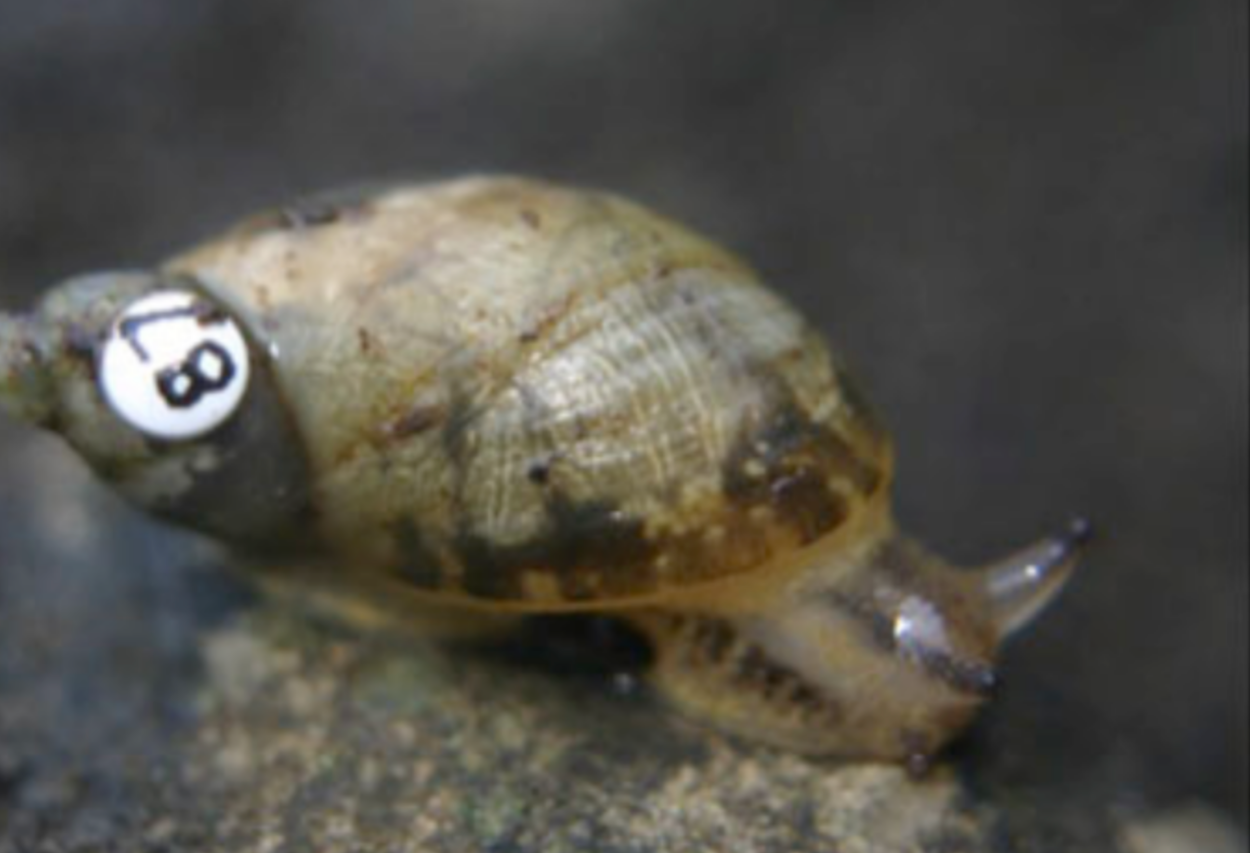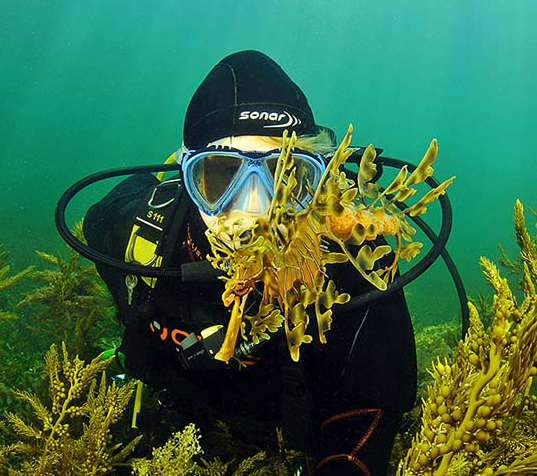-
Research and management questions often focus on obtaining robust estimates of abundance, density, population growth, state transition, and/or vital rates to obtain insights into population status and drivers of change. Among the most popular and diverse approaches to estimating such parameters includes a suite of sampling and analytical methods known as capture-mark-recapture (mark-recap or several similar terms). This class will focus on providing a solid foundation for using these techniques for a broad range of objectives. We emphasize asking good questions, identifying appropriate sampling methods rooted in animal behavior and ecology, and choosing the right analytical techniques in both MARK and RMark. We will show how simulations can be used to improve study design and discuss their limitations. For many of the exercises in this course, we will focus on analyzing data from large-scale grizzly bear projects co-led by Dr. Stetz. Focusing on this case study will help practitioners see more clearly how the elements of a study (background, objectives, field methods, analyses, and modeling assumptions) interact, and how this leads to better study design and execution. Following completion of this course, students can expand their CMR knowledge by taking the next course in the series, Capture-Mark-Recapture II.
-
Learn at your your own pace with or without instructor support (see Online Course Format Chart below for details).
Winter: December 1, 2025 – February 22, 2026 (Early bird ends November 2)
Spring: March 2 – May 24, 2026 (Early bird ends February 1)
*Early bird saves $75
-
Introductory statistics; basic experience in R (R Boot Camp); and familiarity with logistic regression (Generalized Linear, Additive, & Mixed Models), population ecology, and animal behavior.
-
Asking the right question, identifying objectives, defining your study population, and hypothesis development
Foundations of modeling CMR (i.e., detection, non-detection) data
Introduction to open and closed population, spatial (SECR) and non-spatial, and mark-resight models
Covariates (what they can and cannot tell us), how to work with them, and common problems
Linking animal behavior, population status, and life history to sampling and analyses
Model selection theory, assumptions, and limits
More detailed look at models to estimate abundance, density, and population growth rates
Applications to other frameworks such as integrated population and matrix models
COURSE OPTIONS & INFORMATION (Review chart above, then click below)
-
FORMAT:
3 months of access to course materials as you work at your own pace
CONTINUING EDUCATION:
16 CEUs with The Wildlife Society
4 CEUs in Category I(a): Scientific Education and Training with the Ecological Society of America
Go to our Continuing Education Page for more details
-
FORMAT:
3 months of access to course materials as you work at your own pace
Get instructor support for the 3-month term via email, discussion threads, group meetings, and one-on-one appointments
After working through the course materials, set up an optional meeting with the instructor to discuss your own personal project from work or school
CONTINUING EDUCATION:
16 CEUs with The Wildlife Society
4 CEUs in Category I(a): Scientific Education and Training with the Ecological Society of America
Go to our Continuing Education Page for more details
CERTIFICATIONS:
Earn 1 credit toward certification as an Ecologist (at any level) with Ecological Society of America
Earn 1 credit toward certification as an Associate/Certified Wildlife Biologist® (at any level) with The Wildlife Society
-
FORMAT:
12 months of access to course materials as you work at your own pace
Get instructor support for the 3-month term via email, discussion threads, group meetings, and one-on-one appointments
After working through the course materials, set up an optional meeting with the instructor to discuss your own personal project from work or school
CONTINUING EDUCATION:
16 CEUs with The Wildlife Society
4 CEUs in Category I(a): Scientific Education and Training with the Ecological Society of America
Go to our Continuing Education Page for more details
CERTIFICATIONS:
Earn 1 credit toward certification as an Ecologist (at any level) with Ecological Society of America
Earn 1 credit toward certification as an Associate/Certified Wildlife Biologist® (at any level) with The Wildlife Society
Earn 1 credit towards a professional certificate in Applied Quantitative Ecology with CWS
ACADEMIC CREDIT:
Earn 1 academic credit (go to our Academic Credit Page for details)
Earn an additional 1-2 academic credits with an Applied Project
INSTRUCTOR
“I took CWS's introduction to capture mark recapture methods in July 2023, and it has been incredibly valuable to me in improving the analyses I'm working on for my PhD. Jeff Stetz was my instructor, and he has provided excellent guidance and expertise for learning to use these challenging but rewarding tools. Jeff has taken the time to have thoughtful discussions with me about my data, helping me to understand the nuances of selecting appropriate models, carefully considering assumptions, and trouble shooting issues. It is clear that he has deep respect both for his students and the tools we are learning to use. Though I am a novice when it comes to CMR methods, I have felt empowered and supported using these tools thanks to Jeff's guidance, and the quality of my thesis has improved as a result. In addition to excellent instruction in estimating population parameters, Jeff encourages his students to thoughtfully consider the quality of our data and our larger goals in exploring causal relationships. He generously takes the time to support students in adapting CMR methods to our unique projects and specific research questions. I hope to have further opportunities to work with Jeff and CWS in the future!”
-Chrissy Tustison (she/her)
PhD Candidate, School of Biological Sciences
The University of Western Australia
“I had the pleasure of learning from and collaborating with Dr. Jeff Stetz on a large-scale scale non-invasive bear study to estimate abundance and density across an Alaskan landscape. Working with Dr. Stetz was an enlightening experience that focused on asking insightful questions, being practical in study design, and prioritizing quality over pursuing precision or the newest techniques. Dr. Stetz's expertise and commitment to the study's integrity were evident throughout our collaboration. His support allowed us to focus on collecting robust data and ensuring the study was methodologically sound. Dr. Stetz's practical and thoughtful approach to research made our collaboration not only successful but also enjoyable. I am grateful for his insights and the opportunity to work together on such an important project.”
-Sterling Spilinek, Research Coordinator & Wildlife Biologist
Ahtna Intertribal Resource Commission (AITRC)
"As a wildlife biologist who is looking to earn continuing education credits, I highly recommend the course. Dr. Jeff Stetz provides thorough and easy-to-understand lesson plans, is available for any and all questions, and makes the course fun and interesting. I really enjoy the real world case studies that he draws upon to further one's understanding of how capture-mark-recapture is conducted. Anyone looking to learn, advance their career, or get that extra edge in the competitive field of wildlife science will benefit from this course!"
Mike Schwartz
Southeast Private Land Specialist
New Mexico Department of Game and Fish
SCHOLARSHIPS
Full scholarships are available to participants from countries designated as “lower income” and “lower middle income” in the World Bank List of Economies. Please see our CWS World Scholars Program page for details.
CANCELLATION POLICY
Cancellations 30 days or more before the start date are not subject to cancellation fees. Cancellations <30 days before the start date are subject to a 50% cancellation fee. No refunds once the course begins.






